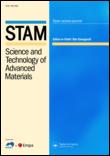eric.ed.gov har udgivet: This collection of lesson plans is designed to help students with disabilities meet Arizona academic standards and learn different types of self-determination skills. Lesson plans are provided for students in grades K-12 with different disabilities and address: (1) oral language, including identifying homonyms; (2) reading acquisition, including teaching reading using the Fernald (VAKT) Method, making words, and fluency; (3) reading comprehension; (4) study skills, including improving test taking skills, managing daily activities, and organizing notebooks; (5) social skills, including social behavior skill development, peer relationships, and giving and receiving compliments; (6) math computation; (7) math problem solving, including balancing checkbooks; (8) written expression, including self-expression, proofreading, and writing conventions; and (9) technology, including using the Internet and team teaching with computers. For each lesson, a targeted academic… Continue Reading →
Like this:
Like Loading...
eric.ed.gov har udgivet: This packet includes reprints of journal articles and other resources concerning the assessment of science and math in small, rural elementary schools. Articles include: (1) “Standards, Assessment, and Educational Quality” (Lauren B. Resnick); (2) “A True Test: Toward More Authentic and Equitable Assessment” (Grant Wiggins); (3) “How World-Class Standards Will Change Us” (Arthur L. Costa); (4) “Smart Tests” (Deborah L. Cohen); (5) “Laser Disk Portfolios: Total Child Assessment” (Jo Campbell); (6) “Portfolios Invite Reflection–from Students and Staff” (Elizabeth A. Hebert); (7) “Portfolio Assessment in the Hands of Teachers” (Clare Forseth); (8) “Portfolio Assessment” (Susan Black); (9) “Assessing the Outcomes of Computer-Based Instruction: The Experience of Maryland” (Gita Z. Wilder, Mary Fowles); (10) “Why Standards May Not Improve Schools” (Elliot W. Eisner); (11) “Assessing Alternative Assessment” (Gene I.… Continue Reading →
Like this:
Like Loading...
eric.ed.gov har udgivet: As a part of the teacher licensure program at the graduate level at The University of Tennessee at Chattanooga (UTC), the M.Ed. licensure candidate is required to complete an action research project during a 3-semester-hour course that coincides with the 9-semester-hour student teaching experience or with school employment. This course, Education 5900 Culminating Experience, requires the student to implement an action research plan designed through (a) the Education 5010 Methods of Educational Research course, (b) a required learning assessment required during student teaching, or (c) a newly-designed project. The course is, also, taken by elementary and secondary teachers who are, already, licensed to teach. The action research projects, from spring semester 2017, are presented. This Action Research Project includes: (1) Student Transition into Ninth Grade (Jennifer Clemmer);… Continue Reading →
Like this:
Like Loading...
tandfonline.com har udgivet en rapport under søgningen “Teacher Education Mathematics”: Abstract We conducted a global survey on the effects of the Covid-19 pandemic on the research activities of materials scientists by distributing a questionnaire on 9th October 2020 with a response deadline of 23rd October 2020. The questions covered issues such as access to labs, effectiveness of online conferences, and effects on doctoral students for the period covering the first lockdowns until the relaxation of restrictions in late September 2020 in many countries. The survey also included online interviews with eminent materials scientists who shared their local experiences during this period. The interviews were compiled as a series of audio conversations for The STAM Podcast that is freely available worldwide. Our findings included that the majority of institutes were not… Continue Reading →
Like this:
Like Loading...
